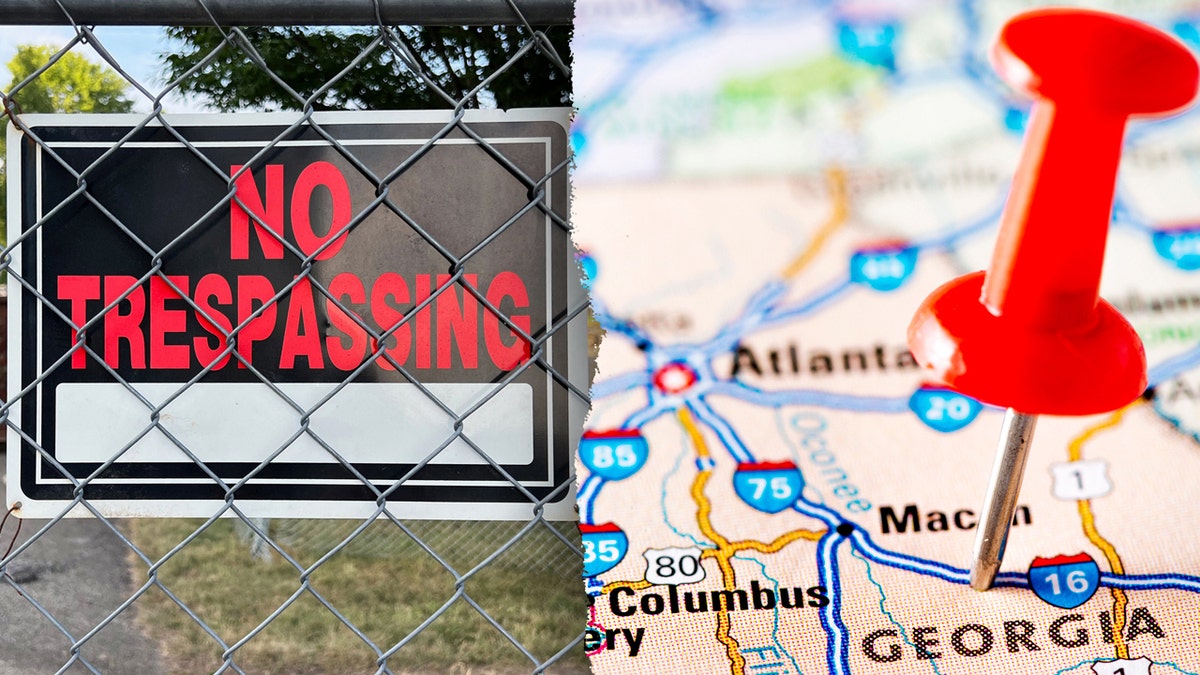Georgia is one of the states that has increased penalties for tenants and made the process of evicting tenants faster for homeowners.
The Georgia Squatter Reform Act was signed into law by Governor Brian Kemp in April 2024. This bill partially criminalizes squatting and speeds up the eviction process in squatting cases.
“Unfortunately, bad actors have found a way to take advantage of it, exploit it, and actually the process is going through the local government. That’s why we’re passing a bill, which I’ll sign right after this interview, to stiffen the penalties, to prosecute these people, to expedite the eviction process, but also to allow the landlord to go after these tenants for compensation,” Kemp previously said on “Fox & Friends,” while discussing recipes.

Georgia tightened its anti-squatter laws when Governor Brian Kemp signed the Georgia Squatter Reform Act into law in April 2024. (iStock)
ACCORDING TO AN EXPERT, MENTAL AND PHYSICAL CONDITIONS MAY BE SOLVED, ACCORDING TO OWNERS OF HOUSES TAKEN OVER BY SQUATTERS
“It’s crazy that people just think they can come and take over someone’s house. It’s just outrageous,” Kemp said.
The Georgia bill’s signing came shortly after Gov. Ron DeSantis signed a similar bill a month earlier in Florida.
“I’m sure it’s pretty much the same thing, we just need to use the legal authority we have to speed up the process,” Kemp said, referring to the similarity of the Georgia bill to the Florida bill. “I mean, look, it’s crazy to begin with that something like this even happens. But when you can’t remove these people from your property, as a property owner, it makes the world we live in crazy crazy, and I know Governor DeSantis is not going to tolerate that, and neither are we,” Kemp said.
The bill’s sponsor, Rep. Devan Seabaugh of Marietta, spoke with Fox 5 Atlanta about the Tenant Reform Act and how it will help get cases through the court faster.
“What we’ve done with this bill is take it to magistrate court, non-jury trials, to expedite this,” Seabaugh said in March 2024.

The Georgia Tenant Reform Act helps, in part, speed up trials in cases brought to court. (iStock)
Self-help eviction methods designed to remove tenants can lead to legal problems for homeowners
“If they produce a lease, they have three days to present it to the court. The court has seven days to decide whether it is a good lease or a fake one,” he told the outlet.
Over the past few years, it has seen an increase in the number of tenant cases brought to court, according to a report by the Pacific Legal Foundation, which has seen an increase in tenant cases in Georgia since 2019.
Kyle Sweetland, research manager at the Pacific Legal Foundation, previously told Fox News Digital that it used Georgia’s “centralized registration system” to collect data.
“There are some legal codes in Georgia regarding squatting, where I was able to check and see that these cases actually involve squatters,” Sweetland previously told Fox News Digital.

Data on squatter cases is limited, although research by the Pacific Legal Foundation showed an increase in the number of squatter-related lawsuits since 2019. (iStock)
“I think these are very rough estimates, but they are accurate estimates of what types of cases are being filed against tenants in these states on a broader level,” Sweetland said of the data, which was pulled from 25 of Georgia’s 159 counties.
CALIFORNIA SQUATTER LAWS ALLOW POTENTIAL RENTAL RIGHTS AFTER 30 DAYS AT THE PROPERTY
Other laws related to tenant matters include illegal possession laws. Just as each state has its own set of laws regarding squatting situations, each state also has its own requirements that must be met before adverse possession can be considered.
Adverse possession occurs when a person comes into possession of property belonging to another person after meeting a certain set of requirements.
According to FindLaw.com, Georgia adverse possession laws require a person to have occupied the property for 20 years before they can claim it. If the color of the title is held by a person, then this period is reduced to seven years.
State adverse possession laws are set forth in Code Section 44-5-161 and include, but are not limited to, requirements such as a person’s possession being “public, continuous, exclusive, uninterrupted and peaceful” and being “accompanied by a claim of right.”
CLICK HERE TO DOWNLOAD THE FOX NEWS APP
Adverse possession has often been used as a synonym for “tenants’ rights.”
Ashlyn Messier is a writer for Fox News Digital.